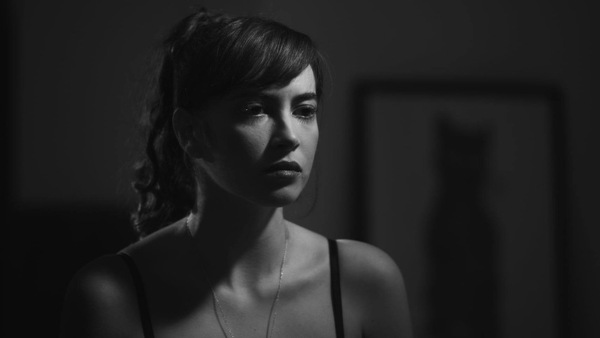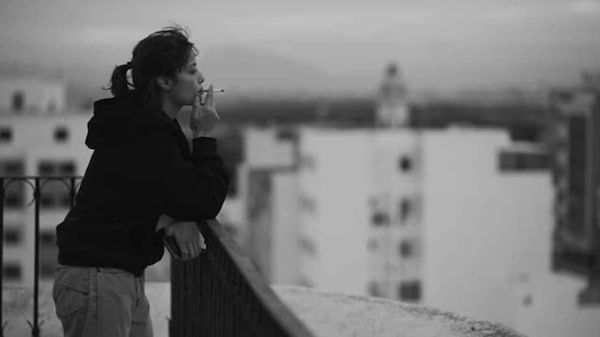Black Medusa review: A Tunisian thriller spotlighting a serial killer’s double life
A vindictive young woman spends her after-hours murdering sloshed men at their homes.

Last Updated: 01.14 PM, Feb 18, 2022
STORY: Burdened by her bitter past, Nada picks up predatory men at dance floors only to kill them later in the night.
REVIEW: A quiet, gentle girl seen strolling through art galleries in the afternoon turns into this impatient revenger by night, who murders drunk suitors in cold blood at their apartments and confidently walks out of the crime scene. Directed by Youssef Chebbi and Ismaël, Black Medusa follows the wacky double life of Nada (played by Nour Hajri) in this arresting yet impassive Tunisian noir.
The 1-hour-36-minute narrative is broken down in monochromatic episodes of ‘nine nights’ - each more chilling and expressionless than the other. Nada speaks very little and mostly communicates through a voice app, but her sharp gaze is unmissable. It doesn’t take one too long to decipher that she has a noisy mind - which is merciless and full of vengeance. A curious flashback also drops hints of a disturbing past. Nada loves her dagger that she picked up from a cupboard at one of her victims' homes. She is cold, observant and focused.

Piercing through the dead of the night, she walks back home almost in a trance. It was not until an investigation was unleashed that traced a pattern in the manner these men were brutally killed that Nada’s only acquaintance, her colleague Noura (played by Rym Hayouni), could connect the dots of her mysterious after-hours whereabouts.
Parallel to the trail of Nada’s risqué nights runs the story of a man trapped in a deep hole where all he could see is a piece of the sky. The narrator says that he eventually befriends the daughter of the moon and the narrative takes a turn.
The film’s recurrent ambiguity and nuggets of philosophy interjecting at various points leaves the audience with no other choice but to draw their own conclusions. There is a clear strain of vengeance in every slash of a knife, but again there are moments of violence that could have been a bit more visually explicit. City lights, sweaty dance floors, clattering stilettos and the no-word-spoken frames add to the black-and-white film’s theme of revenge, but lack the force to make a lasting impact.
VERDICT: It’s a brilliant piece of art with some impressive acting, but an ambivalent style of storytelling makes you drift away at times, leaving you lost, confused, as if in a dream.
*Reema Gowalla is an independent arts and culture journalist, who mostly writes about theatre and independent cinema, and sometimes also delves into culinary heritage.
Subscribe to our newsletter for top content, delivered fast.
